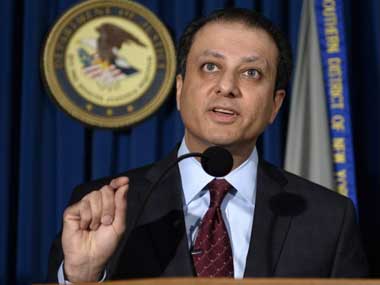Tag Archive for: ethics

Risking Reputation Rarely Rewarded: Lessons From The Lending Club
Blog The recent news about Lending Club is a prime example of the reputational value of business ethics. Last week, The Wall Street Journal reported the company’s twisted fate – it went from receiving a Tribeca “Disruptive Innovation Award” in April (given to then-CEO Renaud LaPlanche) to suffering tumbling stock prices in May, plummeting from approximately $8 on April 1, to a low of $3.94 on the day (May 16th) the WSJ report came out.
The recent news about Lending Club is a prime example of the reputational value of business ethics. Last week, The Wall Street Journal reported the company’s twisted fate – it went from receiving a Tribeca “Disruptive Innovation Award” in April (given to then-CEO Renaud LaPlanche) to suffering tumbling stock prices in May, plummeting from approximately $8 on April 1, to a low of $3.94 on the day (May 16th) the WSJ report came out.

Twice as Nice: On ethics teaching
Blog Can people be taught to be more ethical? While some may say teaching ethics is a recipe for continued headaches and an ongoing, almost Sisyphus-like journey to ensure lessons are absorbed, a new study has positive implications for both academics and practitioners who have dedicated their work to engaging others in ethics education, training and programs.
Can people be taught to be more ethical? While some may say teaching ethics is a recipe for continued headaches and an ongoing, almost Sisyphus-like journey to ensure lessons are absorbed, a new study has positive implications for both academics and practitioners who have dedicated their work to engaging others in ethics education, training and programs.
The as yet unpublished study, covered by Ben DiPietro in The Wall Street Journal’s “Morning Risk Report” and presented at the recent Academy of Management conference, spotlights a key training tactic that will greatly increase ethics knowledge retention and, in the long term, may possibly reduce misconduct.

Guarding Ethics: Azish Filabi’s Keynote at Food and Enterprise Summit
Blog What does it mean to eat and shop “local”? While there is no prescribed territory that those in- and in charge of regulating- the food industry can point to, many will generally agree that it is best to avoid regulation around the appropriate use of the term.
What does it mean to eat and shop “local”? While there is no prescribed territory that those in- and in charge of regulating- the food industry can point to, many will generally agree that it is best to avoid regulation around the appropriate use of the term.
While there is widespread disinterest in having officials involved, when businesses cannot agree on how to accurately define, and ethically use, increasingly common terms like “local” (as well as “sustainable”, “natural’, and “artisanal”) it opens the door to participation by regulatory bodies.
Many are drawn to the local food movement because of a passion for community involvement and realizing their role in local economic development. Intending to start, manage or invest in a purpose-driven business, however, is not sufficient without establishing mechanisms to guard the company’s ethics in the long-run. This theme was at the center of my recent keynote address at the Food & Enterprise Summit in Brooklyn on April 8 (audio now available via the Heritage Radio Network). Our motivation to be ethical can only take us so far- businesses need proper corporate governance, accountability mechanisms, and strong community ties to help guard their ethics as the company grows.

Combating a Culture of Minimalism with Preet Bharara
Blog What does it mean to have an organizational culture of minimalism? On the surface, it results in doing only the bare minimum to avoid punishment from internal or external groups. The more insidious implications means that both shareholders and stakeholders end up disillusioned and disconnected after prolonged exposure to the ennui and modicum of expended energy in actually making positive change.
What does it mean to have an organizational culture of minimalism? On the surface, it results in doing only the bare minimum to avoid punishment from internal or external groups. The more insidious implications means that both shareholders and stakeholders end up disillusioned and disconnected after prolonged exposure to the ennui and modicum of expended energy in actually making positive change.
In a recent talk by U.S. Attorney Preet Bharara as part of NYU Stern Business and Society Program’s Sani Lecture Series, he identified cultures of minimalism as a trending, troubling development in today’s business world. And this is, without doubt, extremely vexing for business leaders, investors, academics and advocates.

Featured Collaborator for April: Jeffrey Kaplan
BlogInterview with Jeffrey Kaplan, partner in the Kaplan & Walker LLP law firm in Princeton, New Jersey
 What are your main areas of research /writing?
What are your main areas of research /writing?
I am principally a practitioner - in the compliance and ethics (“C&E”) field - rather than a professional researcher, and I certainly have not conducted any experimental research. I have done survey research – for the Conference Board (on the role of corporate directors in promoting C&E and on shortfalls in US government enforcement policy vis a vis C&E) and for the Ethics & Compliance Initiative (the “ECI,” which used to be called the ECOA) on conflicts of interest and various C&E program practices. Also, for the past four years I have been assembling and analyzing cases and articles about conflicts of interest (“COIs”) for a blog which looks at various COI issues across varying industry contexts (e.g., what types of interests are cognizable for COI purposes or when should a waiver be permitted) I hope at some point to turn these posts into a book about all things COI-related.

The Global Ethics Summit: Culture at the forefront
Blog Last week, I had the pleasure to attend The Global Ethics Summit, put on by The Ethisphere Institute. The event brought together over 400 people with broad perspectives on managing ethics within organizations, including ethical culture, encouraging speak-up culture, and best practices for Board management.
Last week, I had the pleasure to attend The Global Ethics Summit, put on by The Ethisphere Institute. The event brought together over 400 people with broad perspectives on managing ethics within organizations, including ethical culture, encouraging speak-up culture, and best practices for Board management.
At the plenary on company culture, it was instructive to hear strategies companies are using to address one specific challenge – how do you use the lever of values to change behavior and outcomes in organizations? For us at Ethical Systems, this panel was particularly important because we recognize that creating and maintaining ethical culture within an organization is key to supporting everyday ethical behavior.
Professionalism and Ethical Leadership From General Counsel’s Suite
Blog![]() Among the active debate among compliance professionals, lawyers, and commentators about the proper role of compliance within a corporate hierarchy, there is an emerging consensus that lawyers have become the “loophole finders” and that compliance must step in to protect the firm’s integrity and ethics.
Among the active debate among compliance professionals, lawyers, and commentators about the proper role of compliance within a corporate hierarchy, there is an emerging consensus that lawyers have become the “loophole finders” and that compliance must step in to protect the firm’s integrity and ethics.
Azish Filabi, CEO of Ethical Systems and Jim Lager, ES collaborator, have written a piece for Corporate Counsel that addresses this ongoing conversation. Read the piece on "Professionalism and Ethical Leadership From General Counsel’s Suite." >>

Featured Collaborator for March: Dorothee Baumann-Pauly
Blog Interview with Dorothee Baumann-Pauly, Research Director at the NYU Stern Center for Business and Human Rights
Interview with Dorothee Baumann-Pauly, Research Director at the NYU Stern Center for Business and Human Rights
How does your work on human rights help companies that want to improve themselves as ethical systems?
In contrast to the more established, yet still vague framework, of corporate social responsibility (CSR), business and human rights (BHR) explicitly focuses on aligning companies’ core business processes with their commitment to human rights. Thus, BHR asks how companies are making their money, not how they are spending it. Human rights challenges are real for multinational companies; they pose major business risks to their operations. Companies today are expected to commit to respecting human rights in their business operations, and they need concrete standards that clarify what this commitment means in their operational context. The requirement to report against a specific standard increases transparency over a corporation’s human rights conduct and creates incentives to develop enduring ethical systems.

Strategy and Business Interview: Jonathan Haidt
Blog Jonathan Haidt, Thomas Cooley Professor of Ethical Leadership at New York University's Stern School of Business, was interviewed by strategy+business and shares his insight and expertise on ethical systems design and the various initiatives of our organization.
Jonathan Haidt, Thomas Cooley Professor of Ethical Leadership at New York University's Stern School of Business, was interviewed by strategy+business and shares his insight and expertise on ethical systems design and the various initiatives of our organization.
What causes a company to undermine its own future through ethical missteps? What enables it to lie to regulators, conceal critical data, and take chances on fraudulent activity that might, sooner or later, come to light? Is it the rapacious nature of capitalism itself, as some believe? Is it the work of a few “bad apples,” unavoidable in a milieu of dynamic innovation? Or is it some innate aspect of human behavior, impossible to regulate completely, but possible to understand? This inquiry, framed by New York University professor Jonathan Haidt and a global network of colleagues, could help keep companies out of trouble in the future — or perhaps change our view of what trouble really means.
Continue reading this in-depth interview with Jonathan Haidt >>

Featured Collaborator for February: Steven Blader
BlogInterview with Steven Blader, associate professor of Management and Organizations at New York University's Stern School of Business.

Can fairness motivate ethical decision making or do most people look out for fairness as a one way street: to ensure they are treated like they imagine they deserve to be.
There is an extraordinary amount of evidence that people’s concern about fairness is much more than simply a tool they may use to help them get what they feel they deserve or want. For instance, we often see people defining and evaluating fairness independently of their outcome concerns; reacting more strongly to fairness than to their self-interest; and evaluating and reacting to fairness even as third parties to an encounter and thus when their own outcomes are not involved.
These and other findings confirm to us that people’s concern about fairness is genuine, distinct, and pervasive. As such, fairness can absolutely provide a route to enhancing ethicality in both one’s own, as well as other’s, decision making. That said, there are factors that make the picture more complicated, factors that must be considered when turning to fairness as a route to enhancing ethicality.
